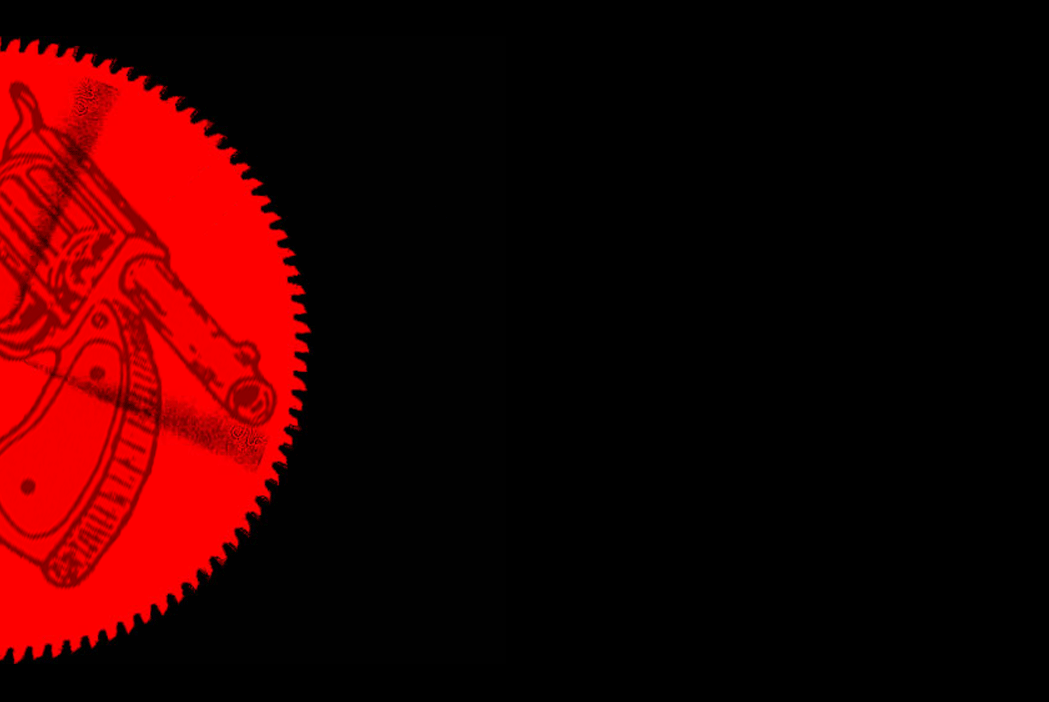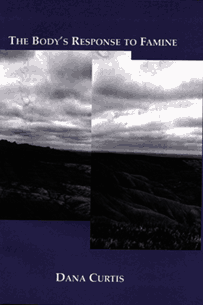

Dana Curtis
The Body's Response to Famine
Paperback Edition
ISBN 1-886350-90-6
80 pages
$12.00
Poetry, 2000
Hardcover Edition
ISBN 1-886350-90-6
80 pages
Originally $75.00, On Sale Now For $60.00
Poetry, 2000
Winner of the Transcontinental
Poetry Award 1999-2000
A poet of an urgent seeing, Dana Curtis articulates extremity, and this with exceptional ferocity, delicacy and power. If her book were a garden, it would be a place of black ice and live water.
--Rikki Ducornet
Antigone of millennial film-noir, Dana Curtis has taken the matter of masks, the practice of personae to their next intensity. Her poems have outdistanced pain, overmastered tragedy, to speak in the upper registers of true wisdom. It is the calm in Curtis' voice that is literally astonishing.
This is a suberb and original book.
--Donald Revell
The Forward by Bin Ramke
THE BODY'S RESPONSE TO FAMINE
It is possible that the dance of every poem is macabre--healing the Cartesian rift, heaving the body along, teaching it the choriambic steps. The collection of poems in hand pay a kind of attention to the mortal dimension which is, on some days, some readings, full of humor. On some days the attentiveness of the poems is a kindness, a generosity. But some readings have revealed a devastation too powerful to name, to painful to attend for long. Each time I read through The Body's Response to Famine I feel its gathering gravity, its weight increasing, its bodyness which includes mind / soul / spirit, any of those words which hope to subtlize despair and physical destiny. Like poetry itself, like this poetry itself, the body (according to these poems) is container and contained, form and content, context and text-and eager to empty itself. I will consider a long poem, "Encyclopaedia Anorexia," as exemplar of the tender ambitions of all the poems here. This poem is about presence and absence the way death is about presence and absence. The innocent grandeur of its enfolding begins with an eerie floating
I float underwater
with my hand in my mouth.
Snakes hang from the trees.
Birds stare redly.
A dog arrives, mouse size, half deer.
I knew a woman once, flesh covered her bone.
Why do the mere words "woman," "flesh," "bones" in such proximity feel so powerful, so full of threat-and that dog, how monstrous, so tender and unthreatening-mouse , deer....
In the following section the speaker becomes "my twin / Black haired angel wearing bones, / ... / the jutting bones are a dream of music / and she is a singer. / She can break glass." The music which is to say the breath aestheticized can be dangerous, can break glass and threaten bones. The poetry of women in the second half of this century has been a remarkable, an astonishing poetry of enactment of power and grace, a jujitsu performance in which the material and manner of verse since the Age of Reason has been turned into a subtle subversion. The aesthetics of the body turned into a weapon, a means of and toward knowledge and power. I don't mean to say all women write the same way, out of the same need and neglect, but that something is going on in so much of the work produced in English by women which reworks all that has been "literary" before, and which reworks the "sub-literary" (fairy tale, joke, apercus) by obliterating boundaries, burning the official bridges and fording all the unmarked streams. Here again is the voice from "Encyclopaedia Anorexia":
your body on the bed does not belong to you or to anyone.
Over the bed is a picture of me, leaning on a sword.
It bends beneath my weight and I smile
at the tattoo invisible beneath my sleeve-
And the consuming self consumes itself:
you were murdered in Los Angeles and
your daughter throws up after every meal
then goes out to row,
says her baby would have been a boy,
wins a competition.
The "unnatural" ejections, of food, of the foetus, of the self,
continues, dance of the self's interior with the world out there- what
an intimacy this is:
Dressing and undressing,
a sound outside human range,
exterminating angel-
dance
or don't.
[...]
What reward is proper
for someone who drags bodies
from the ocean-
that shivering heaven.
The bloated face wishes
to remain veiled
[...]
The mouth is a barrier-
I eat without it,
worship by devouring
my body-flesh of my flesh,
dust of my dust. An empty room
where the soul is invited.
The proper response to a poem, we are told, is another poem, not this disjointed mumbling I'm offering-but what I want to say is simply--Behold! Attend to the dangerous dance happening here in these pages, the way words entangle themselves, the way they weave a fine mesh, a net cast as if by Hephaestus to catch the net of desires created by other words... the erotic myth has been subsumed in the body of Woman, sufficient.
But I haven't spoken of the hunger. Remember how Socrates told us desire requires the absence of the desired-and the energy derives from the desiring, not from the fulfillment. "Remember.../ the famine... the pleasure / with its face unmouthed." ("Diner") In his novel The Following Story, Cees Nooteboom observed the "...bizarre and degrading moment of falling asleep, when the mind must surrender to the body... desiring nothing but the pretense of absence." Beautifully said, but wrong. Perhaps the masculine fear is the discovery there is no difference--body and mind--the degradation is the humiliation of discovering one is body; The Body's Response to Famine posits not a mind-body dichotomy, but a twin, another body:
My twin dies for me;
[...]
I'm bleeding, drowning
my twin and a dance is
collapsed in a circle until
the sacrifice is made.
She
rides bareback, blind on
a blind horse. Drink me:
I'm your deformity. ("The Unchosen Twin")
This book is as powerful an evocation of what it means to live in the physical universe as I have read in many years. It offers no refuge, no hope for escape. But it offers the physical universe. It offers the physical beauty of its words, its sounds, it offers the physical beauty of the look of language on the page, its shapes and swerves. And it offers the continuing, sinuous argument of the body, the dance which is the only gesture we, any of us who are human, can live with, cannot live without. We can almost fly in this book, and whoever reads through to the end will return renewed to the first poem, the last lines of the first poem:
and I run away singing
through all the chambers of the world,
hands glowing with tenderness,
wings, wings.
Bin Ramke
Chicago, 1999
Poems first appeared in:
Berkeley Poetry Review: "Incubus;" Cafe Review: "Diner"Colorado Review: "Attendant on the Death of the Senses;" Columbia Poetry Review: "Effigy;"Denver Quarterly: "The Angel Opened," "The Body's Response to Famine," "The Private Screening," and "Twin in Pieces;" Hayden's Ferry Review: "The World Enters;" Mississippi Valley Review: "The Arsonist With Her Flowers," and "Pope Joan's Malediction;" Nimrod: "The Carnivore Under Glass;" Pinyon Poetry: "Rapture;" Volt: "The Lost Chapters;" West Branch: "Haphazardous."
"Incubus," and "Succubus" appeared in Incubus/Succubus, a chapbook published by West Town Press.

